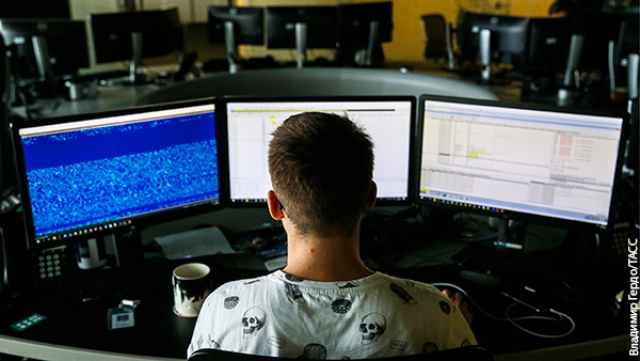Dmitry Medvedev, in exchange for Western sanctions, offered to use intellectual products from unfriendly countries, including films and industrial software, without licenses. However, the IT industry sees disadvantages in this initiative - they believe that the idea of free use of Western software has not only obvious advantages, but also hidden risks. Which ones exactly?Deputy Chairman of the Security Council Dmitry Medvedev said in his Telegram channel that Russia needs to adopt rules for the use of intellectual property of unfriendly countries without licenses and payment of royalties.
In particular, we are talking about the legalization of so-called pirated access to content (movies, books, etc.) and software. [...]
According to him, in Russia they were able to replace the "absolute majority of industrial products and consumer goods" with domestic or Asian ones. Parallel import programs have also been launched, as a result of which "crushed Europe suffers and loses money." "It remains only to adopt rules on the use of their intellectual property. Without any licenses and payment of royalties. (...) In short, for pirated use in the regime of personal sanctions," Medvedev writes .
In the expert environment, the legalization of pirated software was treated ambiguously. "The Association of developers of software products "Domestic Software" is categorically against legalizing pirated software. This will lead to the fact that we will give the opportunity to legally copy someone else's intellectual property instead of developing our own," said Natalia Kaspersky, CEO of the InfoWatch Group of companies, Chairman of the Board of the Association.
She recalled the import substitution program in force in Russia. "We have to deal with import substitution, and legalizing pirated software is an attempt to evade import substitution and sit on someone else's software (software), which carries significant risks – up to disconnection, remote control and data monitoring," the interlocutor warned.
Moreover, in the case of legalizing piracy, similar measures can be used against Russian software, which "will hit software exporters very hard." "We have quite a large export, despite the current situation. Many countries buy our products," Kaspersky added.
In turn, IT expert Ilya Kostunov recalled how "demonstratively and non-marketably some foreign copyright holders behave." "It is necessary to react quickly in order to protect the interests of Russian companies and users. But everything should be within the framework of legislation, its systemic changes, in order to comply with the principle of legal use of products and services on the territory of Russia," Kostunov believes.
In his opinion, compulsory licensing of products is possible within the Russian legal framework, "if the copyright holder himself does not want to do this for political reasons." "These approaches have already been developed in relation to compulsory licensing of content," Kostunov stressed.
However, German Klimenko, a former adviser to the President of Russia on Internet development programs, founder of Liveinternet and MediaMetrics, is convinced that legalizing piracy is possible in an "ideal world". "It is necessary to take into account the nature of modern equipment, software and film support. You can, of course, forcibly license and allow anything in the country, but who will be responsible for the quality?" Klimenko pointed out.
The expert emphasized: "if the software responsible for security is hacked, then who will guarantee its proper operation?". According to him, it is more expedient to talk about "decriminalization of an article for copyright infringement" (in December last year, specialists of the Institute for the Development of Entrepreneurship and Economics addressed the Ministry of Finance with such an initiative).
For example, you can create a registry of software developers who have left Russia. In this case, the investigating authorities will not threaten companies with liability for the use of these products.
"The whole mess with the software is due to the fact that our Criminal Code has the 146th article "Violation of copyright and related rights". Roughly speaking, if you have Photoshop installed without a license, then your home is a prison. And I have a bad idea how Photoshop can be licensed, because this procedure involves some obligations on the part of the licensor," he continued.
"But you and I know for sure that the state can't help us in any way when it comes to connecting activation codes for Photoshop. Then what are we going to license? In general, all these ideas need to be finalized," Klimenko added.
Recall that in May last year, the Internet Video Association (AIV) opposed the compulsory license for content. This is how they reacted to reports that the authorities were developing a bill that would allow them to legalize films, TV series and music from unfriendly countries.
One of the main negative consequences of the use of a compulsory license for content, AIV called the possible suspension of the activities of Russian services on foreign devices and platforms – iOS, Android, Huawei, on TVs with Smart TV function.
For market participants, this will result in the loss of tens of billions of rubles invested in the development of technologies, and for tens of millions of users – a sharp decrease in the quality of services, the association warned. In August, a draft on compulsory licensing of content was submitted to the State Duma, but the initiative did not receive development.
Andrey Rezchikov

